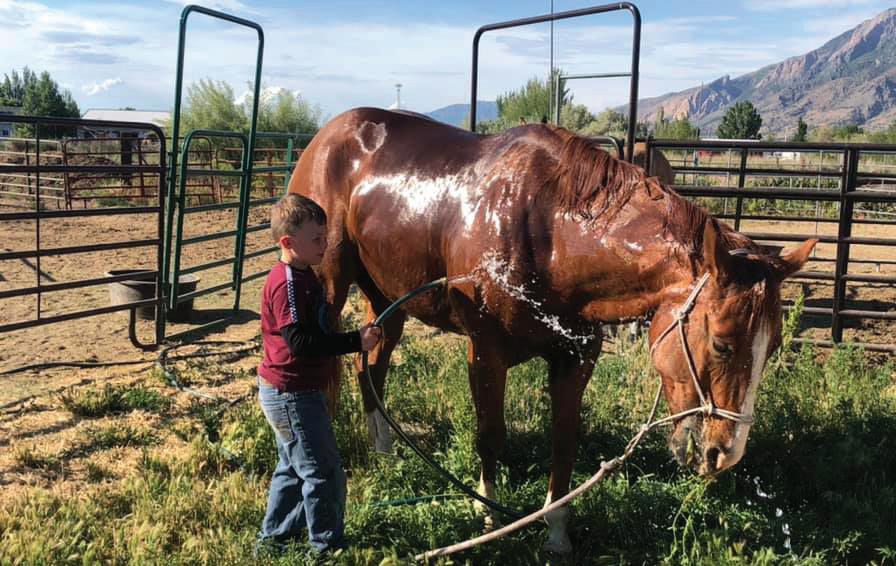AGRICULTURE
Utah Farm Bureau; Farmers feeding Utah WRITTEN BY LACIE KOFORD Western Wasatch Contributor
Allen Bennett, a 4th generation farm owner, is just one farmer and rancher who has been hit hard by the economic effects of the current Coronavirus pandemic. His farm, started in 1896 by his great grandfather has been passed down through generations, having a 125-year existence. In 1996 Bennett Farms received the Utah Century Farm and Ranch Designation. The farm includes 600 acres in Davis and South Weber counties and focuses mainly on produce for local distribution. They grow yellow and red onions, different varieties of potatoes, tomatoes, peppers, squash, and watermelon. They truly take great pride in the quality of their products, making sure that the product they are providing is safe, wholesome, and delicious. Bennett states that he “feels pride in feeding neighbors along the Wasatch Front”. He goes on to state that “it brings great satisfaction to watch someone receive products and the enjoyment they show as they consume those products”. To help farmers and those who are struggling to put food on the table during these unprecedented times, Ron Gibson, President of the Utah Farm Bureau, launched a program early in May called Farmers Feeding Utah. The program aims to help Utah farmers and ranchers as well as families who need food. The struggle for many farmers and ranchers stems from many processing plants closing across the country, making it more difficult for them to make their food available to sell wholesale and to the public. As a result, many farmers have had to let their food go to waste. If farmers can’t sell their products, consumers can’t access those products for consumption, thus leading to more people going hungry and not being able to provide adequate food for their families. Ron states, “seeing examples of that has been among the toughest things I have ever had to experience.” The goal of the new program, Farmers Feeding Utah, is to provide the opportunity for people to donate online in various denominations, $5, $25, $50, $100 or a custom amount and help provide meals for needy families. Organizers of the program will use money from donations to purchase product from farmers and ranchers, use small local processors to produce it, then donate that food to organizations that provide food to people and families who need it. With this set up, both farmers and ranchers who are struggling to keep their farms up and running, and Western Wasatch - July 2020 25


















